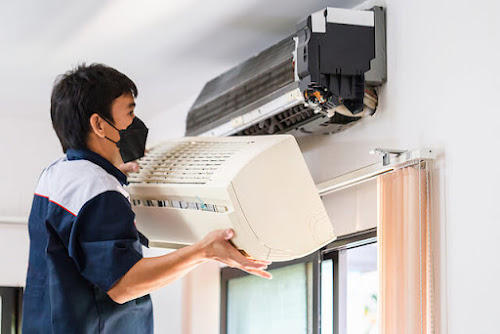Why Air Conditioner Duct Cleaning is Important and How to Do It?
With the rising temperatures and the increasing use of air conditioners, it is essential to understand the importance of air conditioner duct cleaning. Over time, the ducts in your air conditioning system accumulate dust, debris, allergens, and other contaminants, which can adversely affect the air quality in your home or office. Regular cleaning and maintenance of your air conditioner ducts not only ensure a healthier indoor environment but also improve the overall efficiency of your cooling system. In this article, Air conditioning repair in Melbourne will delve into the reasons why air conditioner duct cleaning is important and provide you with some useful tips on how to do it effectively.
Improved Indoor Air Quality:
The air circulating through your air conditioning system passes through the ductwork multiple times a day. Dust, pet dander, pollen, mold spores, and other pollutants can accumulate within the ducts, leading to poor indoor air quality. These contaminants can trigger allergies, respiratory issues, and other health problems. Regular duct cleaning helps remove these pollutants, promoting cleaner and healthier air for you and your family.
Enhanced Energy Efficiency:
Dirty and clogged air conditioner ducts can impede the airflow, causing your cooling system to work harder to maintain the desired temperature. This inefficiency not only puts additional strain on your AC unit but also leads to increased energy consumption, resulting in higher utility bills. By cleaning the ducts, you remove obstructions and ensure optimal airflow, improving the overall efficiency of your air conditioner.
Prolonged Lifespan of Your AC System:
When dust and debris accumulate in your air conditioner ducts, they can find their way into the internal components of your cooling system. This buildup can affect the performance of the AC unit, leading to premature wear and tear. Regular duct cleaning helps prevent such issues, prolonging the lifespan of your air conditioning system and saving you from costly repairs or replacements.
Prevention of Mold Growth:
Damp or humid conditions within the ductwork can create an ideal environment for mold growth. Mold spores can easily spread through the ducts and into the living spaces, posing serious health risks. By cleaning the ducts regularly, you eliminate the moisture and reduce the chances of mold infestation, safeguarding the health and well-being of your household.
How to Clean Air Conditioner Ducts:
Gather the necessary tools: Before you begin, ensure you have a screwdriver, a vacuum cleaner with a brush attachment, disposable dust masks, and cleaning cloths.
Turn off the power: Switch off the power supply to your air conditioning system to avoid any accidents or injuries during the cleaning process.
Remove vent covers and clean them: Unscrew the vent covers from the walls or ceiling and wash them with mild soap and warm water. Dry them thoroughly before reinstalling.
Clean the ducts: Attach the brush attachment to your vacuum cleaner and carefully clean the inside of the ducts, reaching as far as possible. Pay special attention to corners, bends, and vents where debris tends to accumulate.
Clean the registers: Wipe down the registers with a damp cloth to remove any dirt or grime. Ensure they are dry before reattaching them.
Replace the air filter: Install a new air filter to maintain better air quality and prevent the accumulation of dust and debris within the ducts.
Professional duct cleaning: Consider hiring a professional air duct cleaning service every few years for a thorough and comprehensive cleaning. They have specialized equipment and expertise to remove stubborn dirt and contaminants effectively.
Conclusion:
Regular air conditioner duct cleaning is crucial for maintaining a healthy indoor environment, improving energy efficiency, and extending the lifespan of your AC system. By following the steps mentioned above, you can effectively clean your air conditioner ducts. Remember to prioritize safety by turning off the power before starting the cleaning process and wearing disposable dust masks to protect yourself from airborne particles.

Comments
Post a Comment